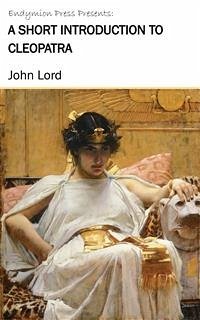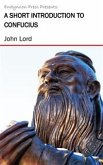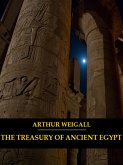It was in this godless, yet brilliant, age that Cleopatra appears upon the stage, having been born sixty-nine years before Christ,--about a century before the new revolutionary religion was proclaimed in Judea. Her father was a Ptolemy, and she succeeded him on the throne of Egypt when quite young,--the last of a famous dynasty that had reigned nearly three hundred years. The Ptolemies, descended from one of Alexander's generals, reigned in great magnificence at Alexandria, which was the commercial centre of the world, whose ships whitened the Mediterranean,--that great inland lake, as it were, in the centre of the Roman Empire, around whose shores were countless cities and villas and works of art. Alexandria was a city of schools, of libraries and museums, of temples and of palaces, as well as a mart of commerce. Its famous library was the largest in the world, and was the pride of the age and of the empire. Learned men from all countries came to this capital to study science, philosophy, and art. It was virtually a Grecian city, and the language of the leading people was Greek. It was rivalled in provincial magnificence only by Antioch, the seat of the old Syrian civilization, also a Greek capital, so far as the governing classes could make it one. Greece, politically ruined, still sent forth those influences which made her civilization potent in every land. Cleopatra, the last of the line of Grecian sovereigns in Egypt, was essentially Greek in her features, her language, and her manners. There was nothing African about her, as we understand the term African, except that her complexion may have been darkened by the intermarriage of the Ptolemies; and I have often wondered why so learned and classical a man as Story should have given to this queen, in his famous statue, such thick lips and African features, which no more marked her than Indian features mark the family of the Braganzas on the throne of Brazil. She was not even Coptic, like Athanasius and Saint Augustine. On the ancient coins and medals her features are severely classical...
Bitte wählen Sie Ihr Anliegen aus.
Rechnungen
Retourenschein anfordern
Bestellstatus
Storno









